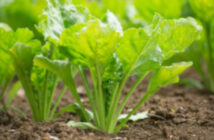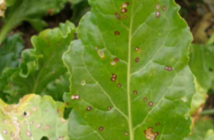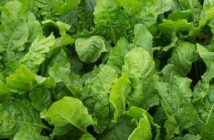Two varieties from Limagrain UK BTS 860 and BTS 260, offering higher output with reduced growing risks, have been added to the BBRO Recommended List for 2017.
Both varieties offer sugar beet growers an opportunity to raise yields and meet end-user requirements at a time when margins are squeezed and reduced inputs welcomed.
BTS 860 is a rhizomania tolerant variety offering very high adjusted tonnes yield at 103.6% of controls, alongside one of the highest sugar contents on the Recommended List at 18.4%, which makes it a very attractive variety for professional sugar beet growers looking to meet the high requirements of sugar processors.
“BTS 860 is likely to appeal to the vast majority of sugar beet growers who find crops perform best when drilled starting during the conventional early sugar beet drilling slot which our Betaseed breeders define as from the 2nd week of March until the end of the drilling period,” says Limagrain sugar beet consultant, Bram van der Have.
During what BBRO refers to as the ‘normal sowing time’, BTS 860 has one of the lowest scores for tendency to bolt. “Or to sum up BTS 860 drilling virtues, it offers flexible sowing and is suitable for early, normal and late sowing.”
He adds that the BBRO RL normal sown bolting data has been obtained from UK bolting trials sown after the 5 March, and this reflects the sowing time of the majority of the UK beet crop. “The UK beet drilling survey indicates that in a favourable year less than 5% of the crop is drilled as “early” with no more than 15% drilled by mid-March.”
“The average drilling date for the UK sugar beet crop has been 25th March for the last couple of years and has remained stable over time. It follows that for the vast majority of the UK beet crop the bolting ratings from normal sowings are applicable to judge a variety’s growing risk.”
BTS 860’s disease resistance offerings reflect the key threats faced by UK sugar beet growers and offers good resistance to these; BTS 860 has a very good rating of 6 for rust and good rating of 5 for powdery mildew. The variety has also exhibited a very good tolerance for downy mildew.
“An establishment score of 99% will give growers the confidence that BTS 860 has the vigour needed to get going even in challenging situations.”
BTS 260 is the second highest yielding variety to join the Recommended List in 2017 offering a remarkable 104.1% adjusted tonnes, with a sugar content of 18.1%, making it a very attractive proposition for growers and end-users alike.
Rhizomania tolerant, BTS 260 has a robust set of disease resistances offering a very good rating of 6 for rust and 5 for powdery mildew, and again data would suggest very good tolerance for downy mildew.
Mr van der Have points out that BTS 260 is suitable for the normal and late sowing slot, which would be from mid-March onwards.
These new varieties are a welcome addition to the Limagrain portfolio which also includes the established varieties BTS 470 and BTS 340. The variety BTS 470 has shown one of the best consistency of performance over very differing seasons of any commercial variety available.
“It’s is all very well to opt for today’s top yielder on the recommended list. But will it be next year’s too? Consistency in performance is equally, if not more important than topping the yield table. One can budget on consistency but only gamble on the top yield.”
Bram van der Have believes that downy mildew is a re-merging threat to a number of UK growers in certain parts of East Anglia, and that with no recommended chemical control options available, genetic resistance is crucial to help in combatting the effects of the disease.
“Downy mildew would appear to be seasonal and is associated with conditions of low temperature and high humidity. In the UK high infection pressure has been observed over the last four years primarily associated with the chalky beet growing soils in the western part of East Anglia, “he explains.
Genetic resistance to downy mildew is known and high genetic-based tolerance levels to this disease have been observed in six trials sponsored by the BBRO and BSPB in 2014 and 2015. The present range of commercially available Betaseed bred varieties including BTS 860 and BTS 470,appear to exhibit tolerance to downy mildew and are amongst the best available.
Both BTS 860 and BTS 260 are bred by Betaseed, for whom Limagrain is the marketing agent in the United Kingdom. Betaseed is the most successful breeder in the United States whist its German subsidiary develops varieties for European markets and has made some significant introductions in several countries.




